-
Helping Your First Grader with Reading Skills
First grade is a pivotal year for literacy. Although struggling readers can always catch up, first graders generally establish themselves as competent or struggling readers during this year. You can support your child’s reading fluency and language comprehension by enrolling him or her in a high-quality first grade program in Pembroke Pines, but kids also need plenty of support at home. Talk to your child’s teacher about what you can do to support his or her success.
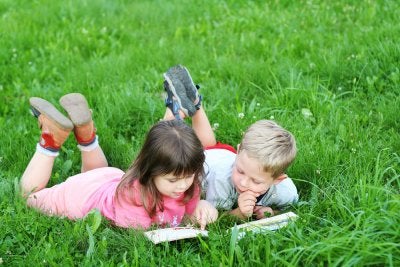
Writing Practice
First graders need lots of repetition and practice to get the hang of reading and writing fluently. Encourage your child put his or her new writing skills to use by asking for help with everyday tasks, like writing reminders on the calendar or adding items to the shopping list. Give your child a visually appealing journal to write in, and help him or her write short letters to grandparents or pen pals.
Word Games
Games are always an engaging way to entice kids to practice their literacy skills. Try Bananagrams, which involves word tiles contained within a “banana” pouch. Ask your child to write a story with you by taking turns adding one sentence to it. Start with a prompt, such as, “Jane was so excited when she woke up this morning because…” You could even create “mailboxes” for each family member. Fold a piece of construction paper in half, and staple the sides together to create a pocket that can be taped to a bedroom door. Household members can write silly notes to each other and “mail” them.
Critical Thinking Questions
Set aside some time each day to read with your child. Take turns reading from a favorite book and ask questions about the story that encourage critical thinking skills. Ask questions such as, “What do you think Jose will do next?” and “How do you think Gretchen felt when her friends did that?”
Screen Time
There are certainly some genuinely educational TV programs and computer games, but these are no substitute for a tangible book. Get your child off on the right foot by limiting screen time. Take your child to the library regularly for new materials he or she can explore during free play time. It never hurts to grab your own book to read silently as your child explores a new picture book or easy reader book.
-
Milestones That Your Child May Meet in Pre-K
Pre-Kindergarten, or pre-K, is often a subject of confusion for parents. It is not the same thing as preschool but rather is a targeted program designed specifically for children about to enter the Kindergarten classroom. Most students in pre-K programs in Pembroke Pines are around four years of age. Pre-K is voluntary—which is why it is sometimes referred to as VPK—but it can have a tremendous impact on children as they prepare to succeed in Kindergarten. Although every child is different, if you choose to enroll your child in pre-K, here are some of the milestones he or she may achieve.
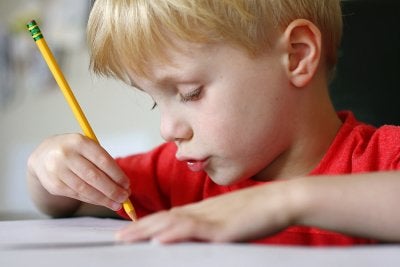
Language and Literacy
Children usually enter pre-K with a vocabulary of about 1,500 words, but by the end of the year, most children speak fluently and can usually use the proper tenses, pronouns, and plurals. Most children also learn to print at least some of their letters in pre-K. In addition to becoming more masterful with language, children also tend to embrace using it more and delight in telling stories or having conversations.
Cognitive Development
During pre-K, children make great strides with their problem-solving skills and can use them for everything from figuring out how to open a favorite snack to working through the rules of a game. Children often also learn to count to at least 10 and may also begin to understand basic concepts about money.
Social Development
For many parents of pre-K kids, social development is one of the areas that is most dramatic. At this age, children become much more invested in their friendships with each other, and they may seek out specific peer groups within the class to spend time with both on the school playground and on the weekends during play dates. At this age, children also become cognizant of fitting in with their classmates and may also begin to seek praise from both parents and peers. Pre-K kids also understand the differences between wrong and right and being honest or dishonest.
-
What Are Some Key Developmental Areas of Toddlers?
Kids change rapidly during their toddler years. As parents, you’ll see your child hitting developmental milestones almost constantly, which is why having an early learning center in Pembroke Pines you can count on is so important. With an early learning center, your toddler will not only hit developmental milestones but also get to practice them on a regular basis, so that they can keep advancing.
At the start of their toddler years, most children can use stationary objects to pull themselves up, use simple explanations, eat with their fingers, and display emotional attachment. By the time toddlers are around the age of three and ready for preschool, they may be able to take turns when playing games, follow multistep instructions, name colors, and grasp pencils and crayons. They can also retell stories, turn book pages, and name common objects. Through an early childhood education program, your toddler will be able to foster these skills and use them naturally in the classroom and at home.
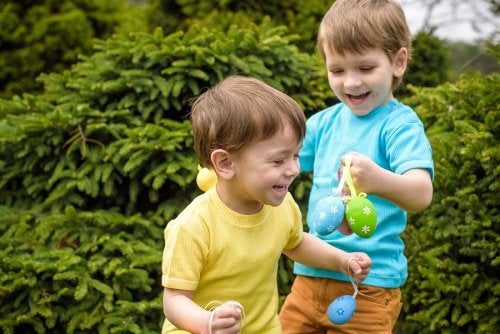
-
Top Reasons Why Summer Day Camp Benefits Children
When summertime comes around, families are often faced with a dilemma about how to keep their little ones busy. Whether you work during the day or simply want your child to do something other than sit inside glued to an electronic device, day camp can be the best solution. In fact, summer day camps in Pembroke Pines offer a surprising array of benefits for kids. Here is a look at some of the rewards your child can reap by signing up for summer camp.

Summer day camp helps kids build social skills.
Summer day camp provides a unique social situation for kids. Often, going to day camp means meeting and bonding with other children that aren’t in their usual class. That means that they have to go out of their way to make and foster connections, learning the negative outcomes of choosing the wrong group of friends or ostracizing other campers. As day campers are making friends, they also must navigate the camp environment on their own and figure out how to get their needs met without being surrounded by familiar faces.
Summer day camp prevents brain drain.
If the last day of school is the first day your child starts forgetting everything he or she learns, the summer day camp could be the solution you’re looking for. Day camp doesn’t resemble school, but mixed in with all of the fun are lessons to help keep your child’s brain engaged and skills up. Your child won’t know that he or she is really learning, but you’ll see the benefits when the new school year begins.
Summer day camp keeps kids active.
If you’re constantly trying to push your child to get outside and play, let summer day camp help you make sure your child gets all that important activity into his or her day. You can count on fun outdoor activities being a central part of camp, which will help your child stay physically healthy and strong while encouraging good habits that can last a lifetime.
-
Activities for Strengthening Your Child’s Motor Skills
A central part of early childhood education is fine and gross motor skill development. At your child’s early learning center in Pembroke Pines , practice with motor skills is likely to be incorporated into the lessons each day. You can further support these activities by working on motor skill development at home.
Watch this video for some advice for improving your child’s motor skills. You don’t need to invest in a special equipment to practice motor skills. Help your child practice balance by using a 2×4 as a balance beam and work on finger and hand skills with Play-Doh that you either buy or make together. Continue making the challenges harder as your child masters different tasks, so that his or her skills continue to develop.
-
Helping Your Child with First Grade Math
- There are many ways to help your child learn and develop his first-grade math skills . Learning first-grade math in Pembroke Pines does not have to center around daily homework. You can engage your child in learning and expanding his math skills whenever you bake a dessert or plan out your schedule for the month. Here are a few easy ways to help your child develop his first-grade math skills:
- Use opportunities from your daily life to encourage math understanding. Let your child help you measure out the ingredients to a recipe. Have him count and sort the different fruits and vegetables you bring home from the grocery store.
- Explore a nearby orchard or plant a produce garden. Your child can count out produce he collects. Collect produce as well, and ask your child who has more or less produce than the other.
- Read daily schedules and weather charts together. These daily numerical pieces of information will help your child develop a better understanding of all types of numbers he will see in first grade.
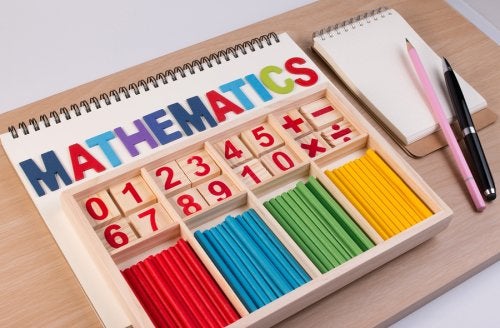
-
Answering Common Questions About Pre-Kindergarten Programs
Pre-kindergarten programs are offered to children in the year before they enter kindergarten. Children will be around four years old, which is when they are beginning to develop a better understanding of the world around them. Pre-kindergarten programs in Pembroke Pines can foster their understanding and provide the necessary academic and social education to help children succeed. Let’s take a look at the answers to some common questions about pre-kindergarten programs.
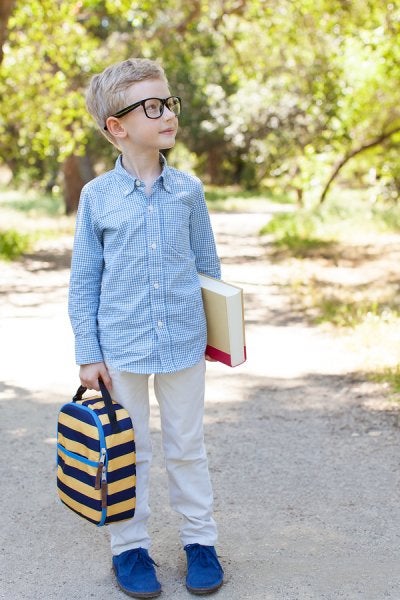
Do they provide academic value?
Pre-kindergarten programs are meant as a stepping stone into kindergarten education. These programs help children develop the much-needed foundations of kindergarten math and reading skills. Children in pre-kindergarten programs will have the opportunity to learn pre-math and pre-reading skills that will also encourage them to take an active role in the world around them.
Do they provide active play?
Active play is essential for growing children, because it encourages the development of gross and fine motor skills. Gross motor skills include larger movement skills, such as throwing a ball or performing somersaults. Fine motor skills include smaller movements needed for future schooling, such as holding a pencil, cutting with scissors, and copying basic shapes. Pre-kindergarten programs will feature a lot of active play to encourage these skills.
Do they provide social interaction?
Pre-kindergarten is a great place for children to develop and continue developing their social skills. Pre-kindergarten programs provide many opportunities to learn teamwork, communication, and social expression. This is a critical time in children’s social development, because it’s when children begin to cement their understanding of right and wrong and how to respond to other kids and adults.
Are they required education?
Pre-kindergarten programs are typically voluntary, and they may be classified as voluntary pre-kindergarten, or VPK. Though voluntary, VPK is an important program for children entering kindergarten. New education standards have made kindergarten curriculum more intense, and children must be fully prepared before entering their kindergarten class. Pre-kindergarten programs offer children the academic education, social interaction, and the foundational skills they will need to succeed in kindergarten and beyond.
-
Getting Kids Ready for Summer Day Camp: Tips for Parents
School will be out soon, and summer camp will begin shortly after. This can be an exciting time for your child, because he can stay busy during the summer and engage in fun summer camp activities like field trips and sports. Whether your child has been to a summer camp near Pembroke Pines or not, there are certain tips that can help prepare your child for his upcoming summer. Read on for helpful tips to get your child ready for summer camp.

Tip #1: Involve Your Child
It is important to involve your child in the decision of summer camp. If your child is excited about the different activities, then he is more likely to enjoy his time away from home. Research different summer day camps and speak with each program’s administrator. Find out what types of summer activities are planned for the kids, and ask your child what he would prefer. Also, consider the potential field trips that each day camp offers to provide further incentive for your child to attend. This will make the summer much more enjoyable for everyone.
Tip #2: Pack Summer Essentials
There are certain summer essentials that you and your child should always have when you leave the house. Ensure that your child has a tube or bottle of sunblock in his backpack to reapply, and apply it before leaving the house in the morning. Pack a refillable water bottle and a light lunch or snack to keep your child hydrated and full of energy. Encourage your child to wear a hat for additional sun coverage while playing outside. This can prevent sunburns and heat exhaustion.
Tip #3: Meet the Instructors
Once you and your child have picked a summer camp, make an appointment to meet with the instructors or a lead administrator. This meeting is a great opportunity to learn more about the leaders your child will be with all summer, and it helps your child feel more comfortable attending the upcoming program.
-
Cognitive Development: Age 3
It is a fun and interesting time when children pass their toddler years and turn three years old. At this age, children are learning more about the world around them, and their preschool activities are filled with make-believe games and sensory-based learning. Here is a better look at the cognitive development of three-year-old children and how their preschool near Pembroke Pines can foster their growth:
As shown in the video, three-year-old children are exploring their world and learning through their different senses. They love to touch objects—such as puzzles and blocks in their learning center—and they enjoy playing make-believe games. This preschool age is the perfect time to encourage children to dress up and use their imagination. Three-year-old children are also learning different concepts, such as those related to time. Foster this understanding by setting a timer to signify the beginning or end of activities.
-
Teaching Social Awareness and Acceptance in First Grade
Will your child be starting first grade in Pembroke Pines ? If so, then both of you are probably excited about this next step, and you may realize that now is a time of rapid development for your student. Read on to learn how your child can benefit from being introduced to social awareness and acceptance while he is in first grade.

Noticing Differences
Children become aware of differences between themselves and others around age 2 or 3. At these ages, they begin to differentiate between boys and girls, show curiosity in differences in hair and skin color, and become aware of obvious disabilities. Additionally, children start to develop racial identities and attitudes at a young age, and research suggests that kids as young as 3 who are exposed to racism and prejudice may embrace and accept these views, even if they don’t understand the feelings behind them. For these reasons, it can be beneficial to introduce first graders to the concepts of social acceptance and awareness at this stage in their development.
Reversing Biases
The bright side for any concerned parent is that biases which children pick up can be reversed and unlearned through positive exposure to diversity. Children have an inherent affinity for fairness, and harnessing this desire and using it as a springboard for conversations about bias and discrimination can help build social awareness and acceptance in children. On the other hand, research has shown that when not addressed, children will notice differences and may develop prejudices, even if they are not discussed by parents. Because of this, not talking to and teaching first graders about bias can allow discriminatory notions to become entrenched in their developing minds.
Learning Elementary Strategies
First grade is an ideal time to teach understanding, awareness, and social acceptance to children. For this purpose, experts recommend 5 strategies that can be beneficial to elementary school-aged children. Using children’s literature, teaching anti-bias lessons, exploring solutions, incorporating the news and media, and giving examples that they can recognize and understand are all ways in which first graders can be introduced to and taught social awareness and acceptance.
RECENT POSTS
categories
- Uncategorized
- Early Learning Center
- Pre-K
- Children
- Child Care Center
- Preschooler
- Preschool Blog Category | Tanglewood Academy
- Preschool Lunch
- Tanglewood Academy
- After-School Program
- Toddler School
- Early Childhood Education
- preschool activities
- pre-kindergarten
- childhood education
- pre-kindergarten programs
- Children’s education
- enrichment opportunities
- Kindergarten
- Nurturing Education Environment
- Toddler Care
- Child Separation Anxiety
- Toddlers
- Summer camp
- summer activities
- VPK
- Voluntary Pre-K
- Outdoor Activities
- Smart Strategies
- Tie Shoes
- Snacks
- Physical Activities
- Education
- Enrichment Activities for Kids
- Early Education Activities
- Preschool Curriculum
- Classroom Learning
- APPLE accreditation
- Language Comprehension
